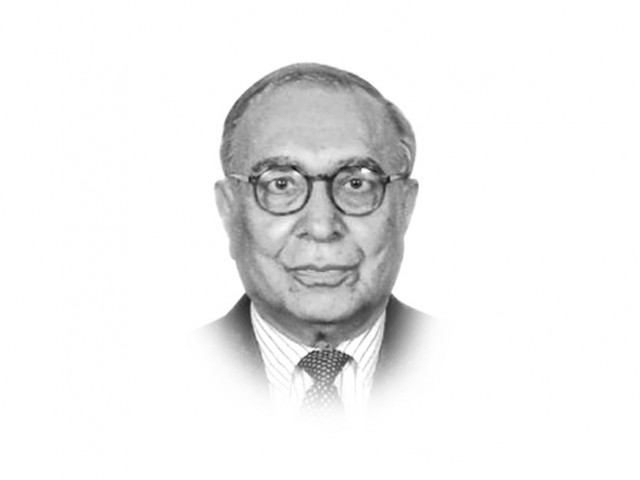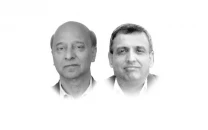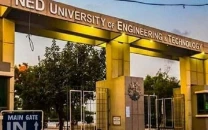Sectarian conflict: the external dimension
In recent cases of conflict in Middle East, we find an attempt to project tussle in sectarian than political terms.

This was not to deny the geopolitics of the sectarian divide, though even there one would have to concede that the exacerbation of sectarian issues in the last three decades has more to do with the failure of the world of Islam to find an internal equilibrium amongst forces that have been present for centuries but which rarely translated into a protracted power struggle. Internal contradictions of the Islamic world have been a perennial theme of Orientalist literature and there is no lack of instances in which outside powers used them to advance an imperialist agenda.
What differentiates recent decades of rivalry and strife from much of the past is easily stated. The rise of imperial powers — West European across the globe and Russian in Caucasus and Central Asia — led to forms of Islamic resistance that transcended sectarian affiliations. When the British tried to overcome entrenched Ottoman power In Iraq during World War I by playing the Shia-Sunni card, there were calls all over the Islamic world for greater solidarity of Muslims. In the post-colonial period, this circling of wagons became less urgent and a whole host of factors led to movements stressing secular ideologies of nationalism and versions of transplanted Marxism. The Arab defeat in 1967 produced an ever-deepening perception amongst Muslim peoples all over the world that these false gods of socialism and territorial nationalism had failed them badly and that salvation lay in what came to be known as political Islam.
No single event differentiated various streams of political Islam more than the Islamic revolution of Iran, though it need not have been divisive. The revolution was rooted in a dynamic, proactive and vibrant reinterpretation of Shia Islam that emphasised social justice and sought to place the dispossessed and disenfranchised at the heart of a radical restructuring of state and society. Like all other great revolutions of history, it disdained territorial limits. Its initial evangelism created apprehensions, the deadliest consequence of which was the eight-year-old Iraq-Iran war. For Iran, it was an existential struggle that produced a new fusion of Shia identity and nationalism. It shifted the revolution to a somewhat different trajectory from the one envisioned by its founding father, Imam Khomeini, who had tried to reach out to Muslims of all persuasions.
The Iranian revolution caused anxiety by championing a radical brand of republicanism and advocating people’s control of the vast energy resources; it was, however, not the only or principal cause of the Sunni assertion that has been more visible recently. Sunni militancy was more of a response to the Soviet invasion of Afghanistan and the later Western military interventions that explicitly aimed at ‘reconfiguring’ the Greater Middle East and the Muslim North Africa.
More than one Western scholar has acknowledged the ‘Orientalist’ undercurrent in the regional policies of the US-led West. Exploitation of ethnic and sectarian ‘fault lines’ was an essential ingredient of these policies. It did not signal identification of the West with any particular Islamic sect; instead, there were opportunistic variations of strategy. In Iran’s case, the so-called Shia threat has been played up to foster an anti-Iran alliance in the Gulf and maintain a siege around Iran. In Iraq, the power of the predominantly ‘Sunni’ Ba’athists was decimated providing an unprecedented opportunity to the Iraqi Shias to emerge as the dominant element in the post-invasion government. In Syria, the West is working with regional allies to enable the Syrian Sunnis to topple Bashar al-Asad.
Sectarian semantics often camouflage other important factors in the ongoing contests of power. Bahraini issues are formulated in sectarian terms with Iran thrown in for good measure though at the heart of the turmoil lies a movement for majoritarian democracy that may eventually dilute the power of the pro-Saudi Al Khalifa family. In Syria, too, the sectarian factor was secondary to the uprising’s initial objective of mass participation of the people through elected institutions. In each and every case, we find an attempt to project the tussle in sectarian rather than political terms.
This unfortunate trend poses a grave danger to the world of Islam. It led to massive bloodletting in Iraq. Now, Syria faces a descent into a similar fratricidal conflict. It threatens sectarian harmony in several Islamic countries, including Pakistan. On another plane, it has triggered a massive arms race in the Gulf whereas such issues as exist between Iran and its Arab neighbours, warrant recourse to a peaceful negotiated settlement and a vision of a larger economic space and perhaps, in due course, a community inclusive of Iran, Afghanistan, Turkey and Pakistan.
It is still possible to pull back from the ‘great divide’. There are schools of thought from the Maghreb to East Asia that are trying to define key considerations of Islamic politics for our times. Many of them are exploring avenues leading to what I called an Islamic civic state wedded to human rights, rule of law and democracy in my earlier article. Quintessentially, it is an effort to restore a democratic alternative to ideological dictatorships that flourished and then fragmented in the Arab world and to the absolute monarchies, most of which already recognise the need for reform but are hamstrung by the perils of loosening controls. We need to move away from rigid interpretations of the faith favoured by the militant groups. Amongst the Muslim states, Turkey does flag the path.
Published in The Express Tribune, September 1st, 2012.














COMMENTS
Comments are moderated and generally will be posted if they are on-topic and not abusive.
For more information, please see our Comments FAQ